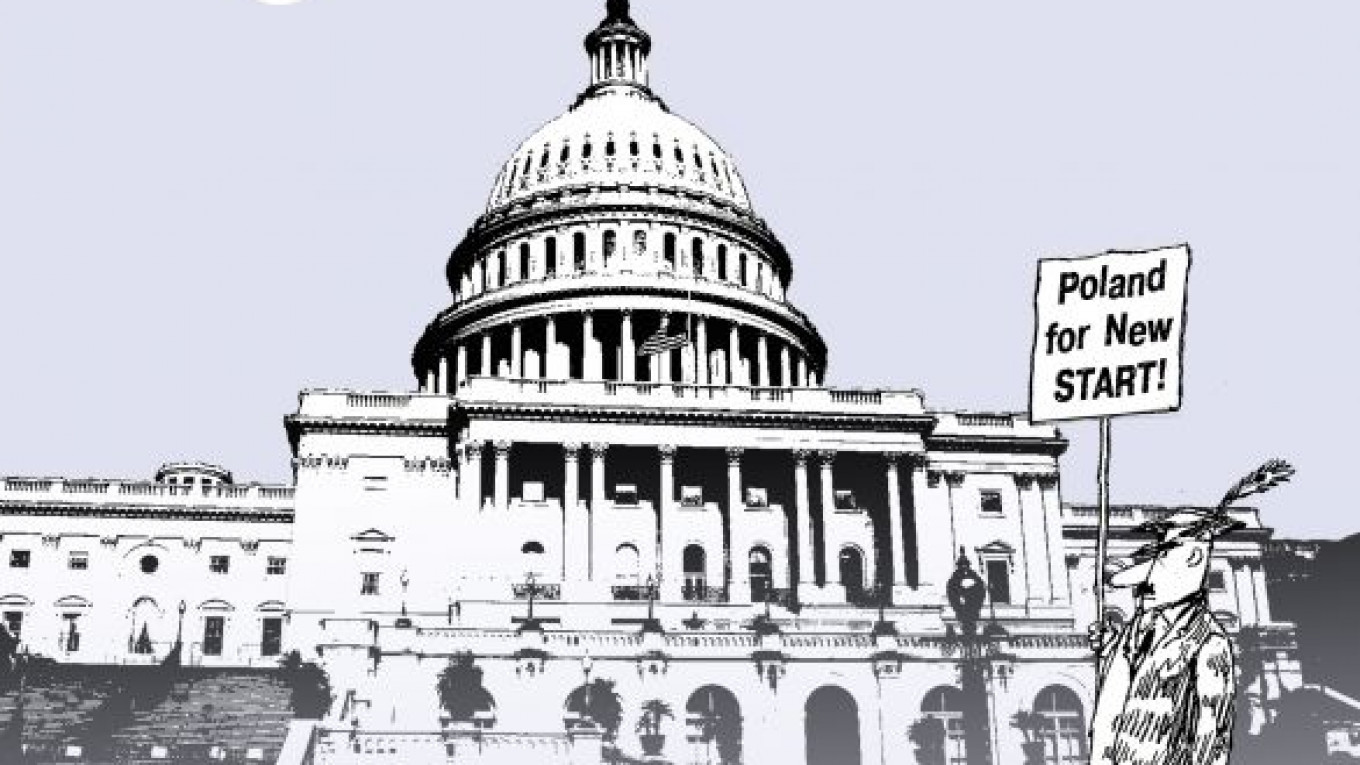As a long-time observer of U.S. politics, I know that the Senate will decide whether to ratify New START on the basis of a thorough evaluation of the country’s national interests. As the democratically elected representatives of the American people, the senators alone can determine what those interests are.
The United States remains the world’s most powerful nation, however, and the senators’ decision will inevitably have an impact beyond their country’s borders. It will be particularly significant for Poland, a staunch ally of the United States in NATO. So it is important to make clear that my government supports the ratification of New START because we believe it will bolster Poland’s security and that of Europe as a whole.
U.S. President Barack Obama’s efforts toward nuclear disarmament have gained wide support in Poland. Former President Lech Walesa, the legendary leader of Solidarity, co-authored an article last year in support of Obama’s bold disarmament agenda.
For almost a year since the expiration of the original START treaty in December 2009, no U.S. inspectors have been on the ground in Russia to verify the state of its nuclear arsenal. The START verification provisions provide crucial information that is essential for the force-planning process.
Without a START replacement treaty in place, holes will soon appear in the nuclear umbrella that the United States provides to Poland and other allies under Article 5 of the Washington Treaty, the collective security guarantee for NATO members. Moreover, New START is a necessary stepping stone to future negotiations with Russia about reductions in tactical nuclear arsenals and a prerequisite for the successful revival of the Treaty on Conventional Forces in Europe, or CFE.
While we in Poland do not perceive an immediate military threat from Russia, most of the world’s active tactical or sub-strategic nuclear weapons today seem to be deployed just east of Poland’s borders in speculative preparation for conflict in Europe. The cataclysmic potential of such a conflict makes it essential to limit and eventually eliminate this leftover from the Cold War.
This was the reasoning behind the Polish-Norwegian initiative aimed at addressing the issue of tactical nuclear weapons within the larger arms-control framework that was initiated in April. In effect, New START is the sine qua non for effective U.S. leadership on the arms control and nonproliferation issues that matter to Europe — from reviving the CFE treaty to preventing Iran from obtaining nuclear weapons.
More broadly, New START will cement the new, more positive tone in relations between Russia and the West. Indeed, we in Poland have adopted our own way of reconciliation with Russia, one based on dialogue and reciprocity.
As a result, Polish-Russian relations have improved significantly over the past three years — no easy feat, given the burden of our shared history. Though difficulties still lie ahead, Poland is determined to build a relationship with Russia based on mutual respect.
Also in the cards is more substantive cooperation between NATO and Russia in the field of missile defense, an issue discussed during the NATO-Russia summit in Lisbon on Saturday, and that has the potential to transform NATO-Russia relations. In order for that to happen, Russia’s leaders must come to view missile defense as an opportunity to work together to address common threats, rather than a threat in itself.
Ratification of New START will increase mutual trust and show that the West and Russia, despite our disagreements, can work together on issues critical to our common security. Any delay to the treaty, however, will embolden those in Moscow who would rather have the West as an enemy than as a partner — and who thus would like to see the tenuous progress made in recent months to be undone.
Meanwhile, the Obama administration continues to pursue its plans for European missile defense. More than a year ago, Poland decided to take part in the new Phased Adaptive Approach, which will primarily protect America’s European allies. The Polish government has agreed to host elements of the modified European Missile Defense System on Polish territory in the second half of the decade.
I hope that U.S. senators take into account the view from Warsaw in making their decisions. New START is in the interest of disarmament and of Europe. Poland supports ratification of this vitally important treaty.
Radoslaw Sikorski is foreign minister of Poland. © Project Syndicate
A Message from The Moscow Times:
Dear readers,
We are facing unprecedented challenges. Russia's Prosecutor General's Office has designated The Moscow Times as an "undesirable" organization, criminalizing our work and putting our staff at risk of prosecution. This follows our earlier unjust labeling as a "foreign agent."
These actions are direct attempts to silence independent journalism in Russia. The authorities claim our work "discredits the decisions of the Russian leadership." We see things differently: we strive to provide accurate, unbiased reporting on Russia.
We, the journalists of The Moscow Times, refuse to be silenced. But to continue our work, we need your help.
Your support, no matter how small, makes a world of difference. If you can, please support us monthly starting from just $2. It's quick to set up, and every contribution makes a significant impact.
By supporting The Moscow Times, you're defending open, independent journalism in the face of repression. Thank you for standing with us.
Remind me later.






